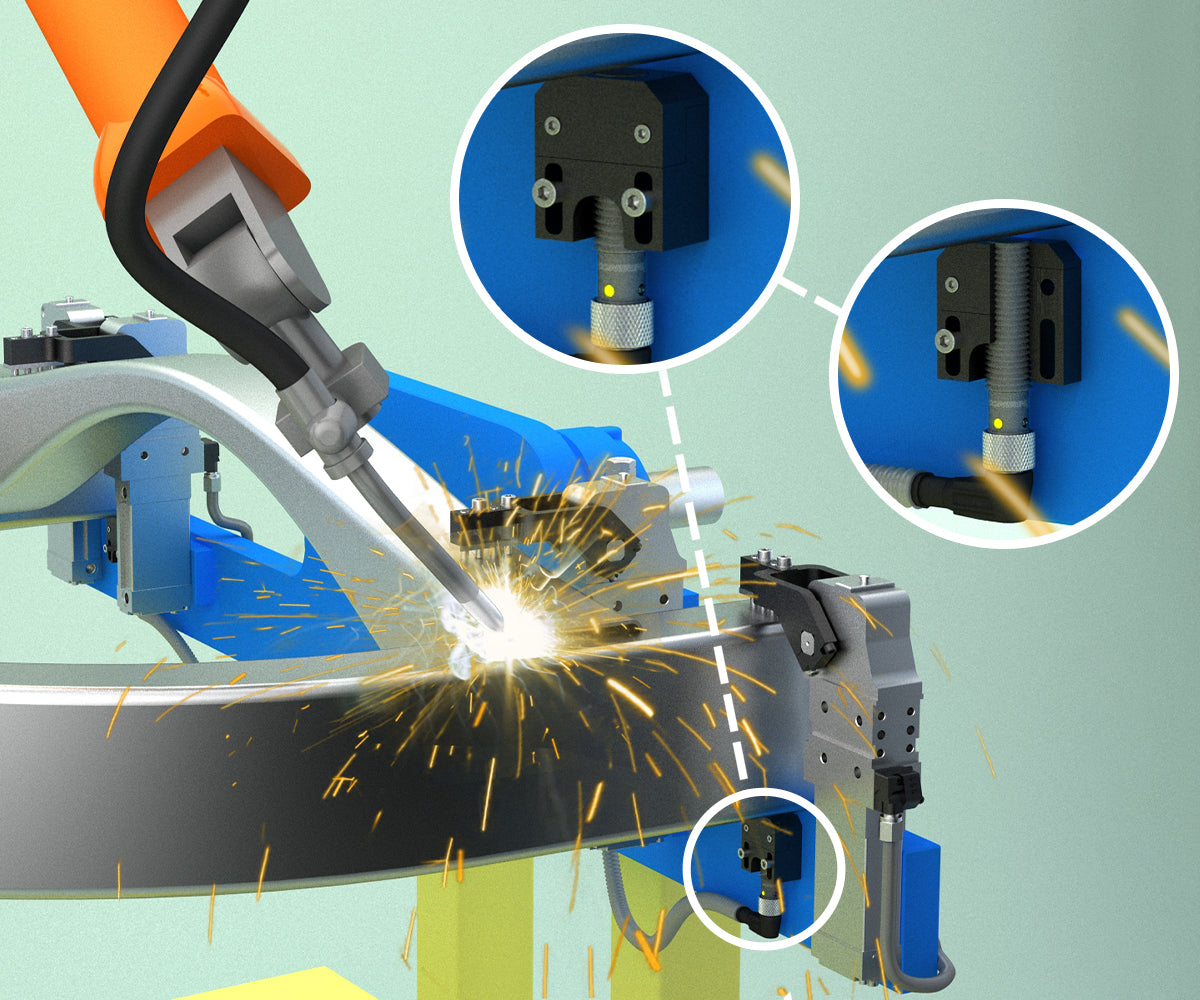Automotive manufacturers wouldn’t make many vehicles without using welding processes to join metal parts together. Whether it’s open-arc welding, resistance welding or some other variation on the theme, there’s one common element – the rapid discharge of energy (typically electrical energy) to become heat energy, fusing together two or more components in an assembly.
For sensors, that’s bad news! Widely used to position, detect and identify parts, most sensors don’t tolerate the strong energy fields that occur during welding processes, or the physical by-products that are produced as a result.
Here are a couple of applications where Contrinex Weld-Immune Sensors made the difference:
During automated chassis-welding in the automotive sector, a misaligned assembly results in costly damage, but position sensors typically suffer from build-up of welding spatter, causing rapid sensor degradation. Contrinex Weld-Immune inductive sensors with a high-performance ACTIVSTONE® ceramic coating are especially resistant to weld spatter.
An automotive valve manufacturer uses Contrinex Weld-Immune inductive proximity sensors to withstand the exceptionally high currents needed to weld aluminum parts. S600 Weld-Immune sensors are immune to electromagnetic interference and sense targets in steel and aluminum equally effectively.
Find out more about Contrinex Weld-Immune Inductive Sensors here
